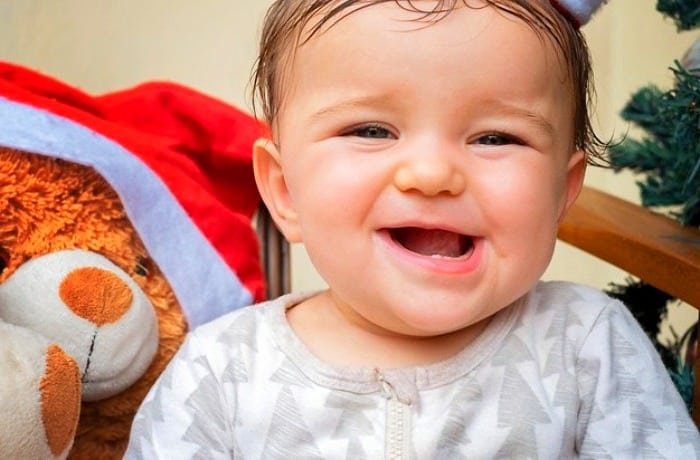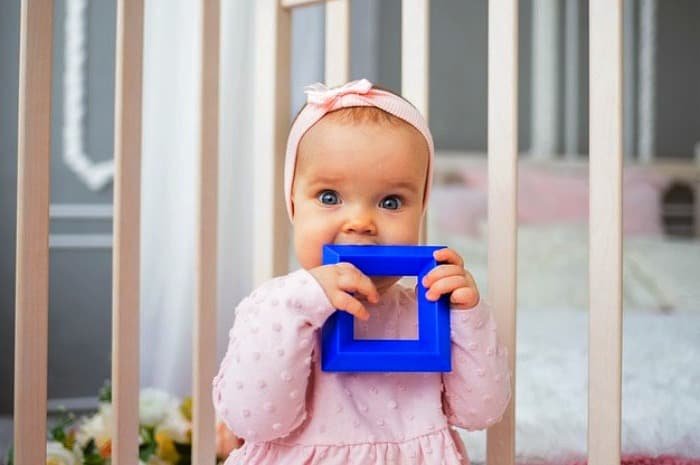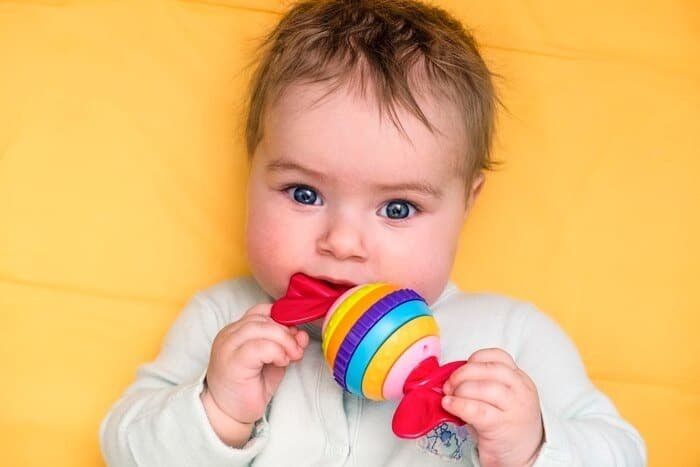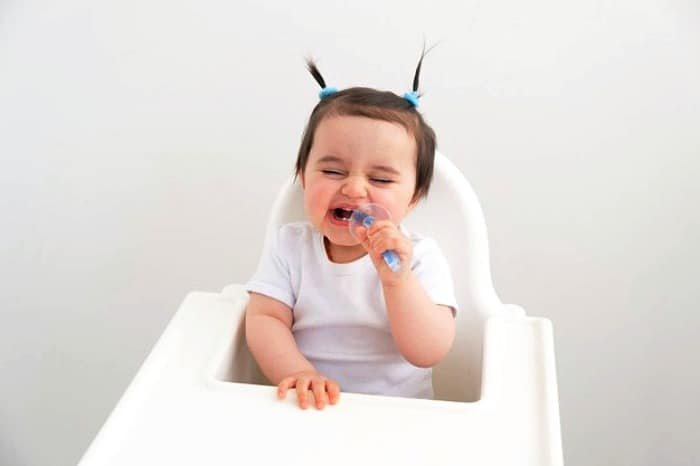Answers to all parents’ questions regardingbaby tooth growth
The most beautiful smile in the world for parents is their child’s smile as they start to laugh with their tiny teeth. The worst thing is noticing signs of decay on those teeth, which is certainly distressing for parents. Teething is the process where the first tooth emerges from the gums and becomes visible. Naturally, parents start to worry about dental care as soon as the first tooth appears. In this section ofSelMagzWe will explain how children’s teeth emerge.

When does baby tooth growth start?
Most children usually begin to develop teeth between 6 to 12 months and will typically have around 20 primary teeth by the age of three.
Order of children’s tooth growth:
Children’s teeth generally sprout in pairs. Initially, the lower front teeth emerge, followed a few months later by the upper front teeth, then the upper and lower lateral teeth, and finally, the primary molars, canines, and secondary molars. Thus, by the age of three, a child will have 20 teeth. The order of tooth emergence based on the child’s age is as follows:
4-7 months: lower central teeth
8-12 months: upper central teeth
9-16 months: upper and lower lateral teeth
By one year old, the child will have 8 teeth
13-19 months: lower primary molars
16-23 months: upper and lower canines
23-31 months: upper secondary molars
By the age of three, the child will have 20 teeth.
*Note that the order of tooth growth is not the same for all children as some may experience rapid tooth growth while others may grow teeth slowly.
When should we be concerned about a delay in our child’s tooth growth?
The average age for a child to start teething is around 6 months. Teething before 6 months is considered early. If a child has not developed any teeth by 13 months, it may be considered a delay, but there’s usually no cause for concern as tooth growth varies from child to child. As long asthe child’s hair, skin, and bones are normal, there’s no need to worry. A delay in tooth growth does not affect their overall development.Some reasons that might delay tooth growth include:
Genetic factors
- Poor nutrition
- Hypothyroidism
- Premature birth
- However, if you believe that family history and poor nutrition are not related to your child’s delayed tooth growth, consult a doctor. Watch for signs first.
What are the symptoms of teething?

During teething, a child may become irritable as their teeth break through the gums. Symptoms typically appear 3-6 days before the tooth emerges and stop as soon as the tip of the tooth breaks through. Teething can be an easy and quick process for some infants, while for others, it may be slow and painful.
Some common teething signs and symptoms include:
Redness and swelling of the gums accompanied by pain and tenderness.
- Excessive drooling; the child may chew on anything they can find. Drooling may continue for a few weeks after the teeth emerge.
- Tugging at the ears, as gum pain can cause
- ear painas well because they share the same nerve pathways.Increased chewing and biting; a child may chew on anything to relieve the pain caused by the pressure from teething.
- Sleep may be disrupted due to prolonged pain. This discomfort can make the child restless, resulting in irritability.
- A lack of interest in food and eating; chewing or sucking on food may cause further discomfort. It’s normal for them to lose their appetite.
- Children might pull at their cheeks due to discomfort in the jaw and cheeks.
- Excessive drooling may cause small, mild rashes around the child’s mouth and chest.
- Sometimes, the teething process may be accompanied by a mild fever.
- If symptoms are severe or if your child exhibits any of the additional symptoms listed later in this section from SelMagz, it may not be related to teething:
High body temperature
- Diarrhea
- Runny nose
- andCoughingBody rash
- If your child exhibits any of these symptoms, it is advisable to consult a doctor. If your child screams due to sudden pain, take them to a doctor.Actions to avoid while teething include:
Avoid numbing products; during teething, do not apply gels or alcohol on your child’s gums as they can numb the throat and make swallowing difficult. It may also pose a risk of reduced oxygen levels in the blood.
Avoid any herbal or homeopathic gels as their ingredients may cause heart issues and
- drowsiness
- Topical ointments are ineffective as they will be washed away when the child is breastfeeding.Forget about using the teething ring; there is no evidence that teething rings relieve gum pain, and they can present a choking hazard.Avoid rubbing clove oil
- on your child’s gums, as it can cause a burning sensation.
- The teething process for a child is one of the longest and most painful stages of their growth. As parents, you must be patient until this process is over.
- How long does tooth growth pain last?There is no specific time frame for tooth growth. After the first tooth emerges and the pain subsides, the child may feel discomfort again when their molars come in. This is because molars can be more painful and troublesome than front teeth, as they are larger and located at the back of the mouth.Ways to care for your child’s teeth:
Children’s primary teeth, like their permanent teeth, require care. Early dental hygiene is essential to prevent decay. Here are some tips for caring for your child’s teeth:

Clean your child’s gums with a sterile gauze or clean cloth.
Provide separate utensils for your child, as sharing with other family members can lead to gum infections.
Give your child foods rich in vitamins and minerals to help strengthen their teeth. They need calcium, fluoride, phosphorus, and
Vitamin C
- for healthy tooth and gum development.
- Avoid giving sugary foods and sweetened drinks to your child as they can cause
- tooth decay.Once your child’s 20 primary teeth have emerged, schedule a dental examination for them.Serve drinks with a cup instead of a bottle, as drinking from a bottle can lead to tooth decay.
- Avoid giving a bottle when your child is sleeping, as it can cause slow tooth decay.After using sweet supplements and medications, rinse your child’s mouth with water.Start brushing their teeth when they are 18 months old.
- Some common and frequently asked questions:
- 1. Does teething cause fever,
- diarrhea?
- A mild increase in temperature is common during teething, but there is no evidence that it causes fever. If your child has a fever along with vomiting, diarrhea, or loss of appetite, definitely see a doctor.
- 2. Does teething cause vomiting?

While some believe that viral infections cause vomiting, others relate teething to vomiting. If your child experiences severe vomiting along with an infection or fever, consult a doctor.
TeethingSigns of Baby Teeth DevelopmentChild’s Tooth
Start of Baby Tooth Growth
Teething in Infants
Child Dental Care Tips







